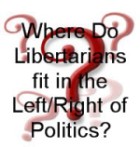The Sunday New York Times
 The Antiwar, Anti-Abortion, Anti-Drug-Enforcement-Administration, Anti-Medicare Candidacy of Dr. Ron Paul
The Antiwar, Anti-Abortion, Anti-Drug-Enforcement-Administration, Anti-Medicare Candidacy of Dr. Ron PaulWhipping westward across Manhattan in a limousine sent by Comedy Central's "Daily Show," Ron Paul, the 10-term Texas congressman and long-shot Republican presidential candidate, is being briefed. Paul has only the most tenuous familiarity with Comedy Central. He has never heard of "The Daily Show." His press secretary, Jesse Benton, is trying to explain who its host, Jon Stewart, is. "He's an affable gentleman," Benton says, "and he's very smart. What I'm getting from the pre-interview is, he's sympathetic."
Paul nods.
"GQ wants to profile you on Thursday," Benton continues. "I think it's worth doing."
"GTU?" the candidate replies.
"GQ. It's a men's magazine."
"Don't know much about that," Paul says.
Thin to the point of gauntness, polite to the point of daintiness, Ron Paul is a 71-year-old great-grandfather, a small-town doctor, a self-educated policy intellectual and a formidable stander on constitutional principle. In normal times, Paul might be — indeed, has been — the kind of person who is summoned onto cable television around April 15 to ventilate about whether the federal income tax violates the Constitution. But Paul has in recent weeks become a sensation in magazines he doesn't read, on Web sites he has never visited and on television shows he has never watched.
Alone among Republican candidates for the presidency, Paul has always opposed the Iraq war. He blames "a dozen or two neocons who got control of our foreign policy," chief among them Vice President Dick Cheney and the former Bush advisers Paul Wolfowitz and Richard Perle, for the debacle. On the assumption that a bad situation could get worse if the war spreads into Iran, he has a simple plan. It is: "Just leave." During a May debate in South Carolina, he suggested the 9/11 attacks could be attributed to United States policy. "Have you ever read about the reasons they attacked us?" he asked, referring to one of Osama bin Laden's communiqués. "They attack us because we've been over there. We've been bombing Iraq for 10 years." Rudolph Giuliani reacted by demanding a retraction, drawing gales of applause from the audience. But the incident helped Paul too. Overnight, he became the country's most conspicuous antiwar Republican.
Paul's opposition to the war in Iraq did not come out of nowhere. He was against the first gulf war, the war in Kosovo and the Iraq Liberation Act of 1998, which he called a "declaration of virtual war." Although he voted after Sept. 11 to approve the use of force in Afghanistan and spend $40 billion in emergency appropriations, he has sounded less thrilled with those votes as time has passed. "I voted for the authority and the money," he now says. "I thought it was misused."

 Contact Me
Contact Me








2 Comments:
Funny how often the MSM feels the need to say "Ron Paul will not become president."
They don't need to say it about Huckabee, Brownback, Hunter, Tancredo, or Tommy Thompson.
I almost think they're worried.
great article, thanks for psoting.
I live in TX and love ron Paul. have supported him all these years, and even if he does not get his party's nomination, he has served an important purpose in this election cycle.
He's stirred things up and got people talking, engaging in a healthy debate. He is the only Republican who has been able to cross over and get a good deal of Democratic support. He's bringing left and right together.
And he will *not* compromise!
Post a Comment
<< Home